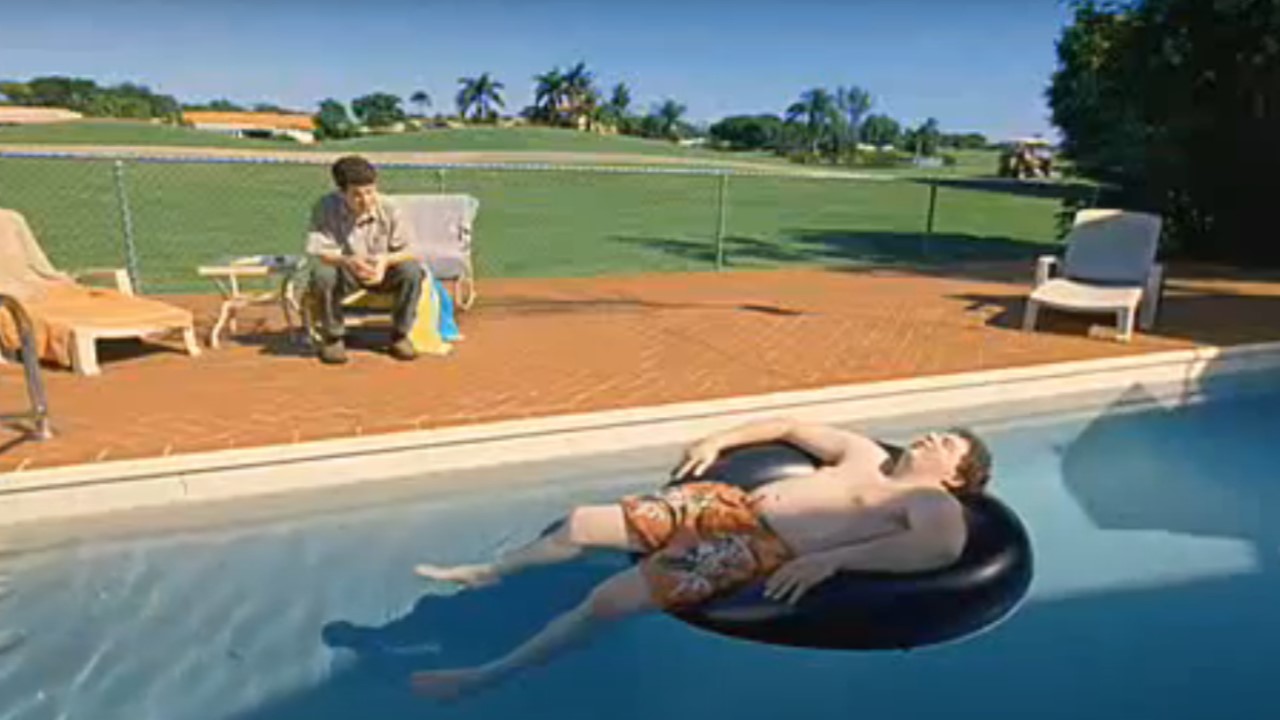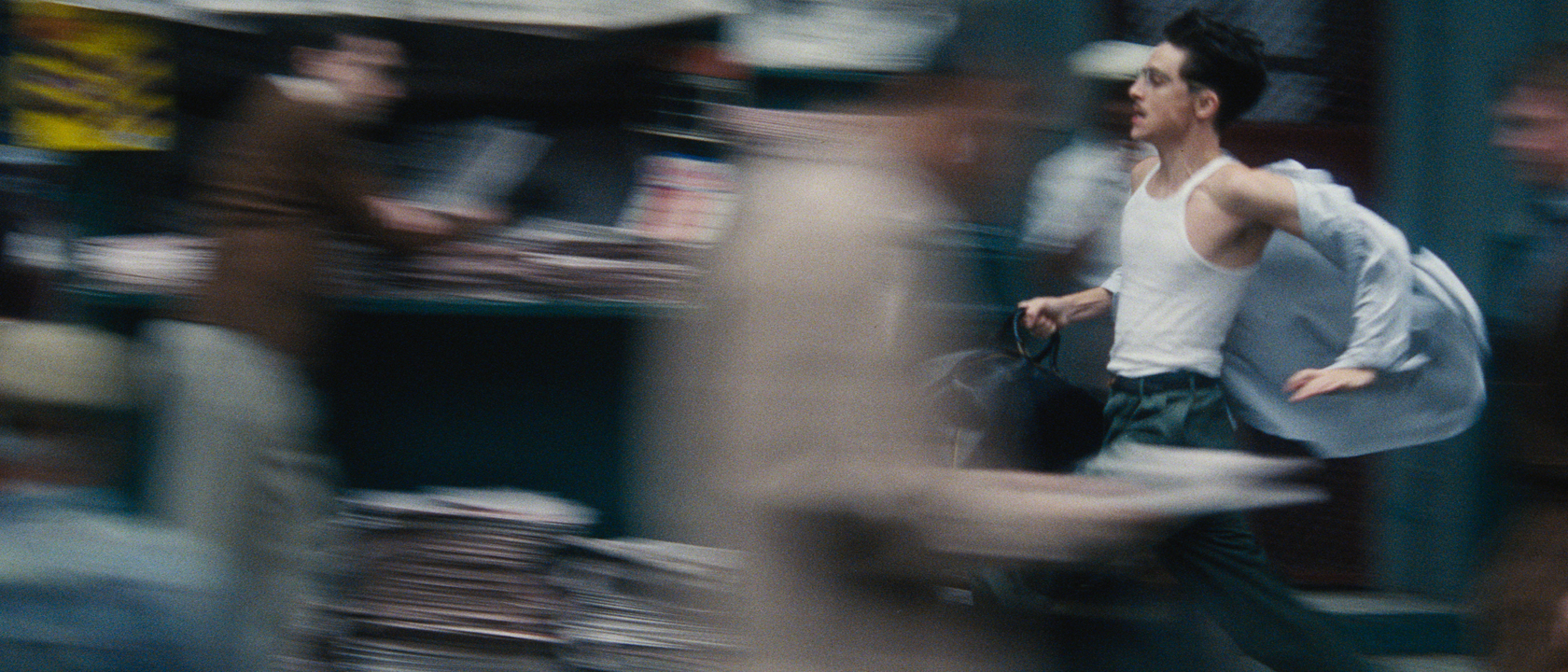Exclusive Interview: Bart Got A Room Director Brian Hecker

Maybe I've been a little burned by my Tribeca Film Festival experience, being on the red carpet and practically begging for interviews. After a week of this I got on the phone with Brian Hecker, the director of the veritable Tribeca hit Bart Got a Room, and I was shocked when he gave me 10 extra minutes on top of the 20 minutes I'd asked for. I was even more shocked when he said he'd read my review, and thanked me for it. And when he seemed genuinely excited about all the good response his film has gotten? Well, all that film festival cynicism just melted away.
Brian Hecker won the Director of the Year award at the American Film Institute when he earned his master's in directing ten years ago, but Bart Got a Room is his first full-length feature. Those grad school connections couldn't have hurt, though-- how else do you get a cast including William H. Macy, Cheryl Hines and Alia Shawkat for your first film? And Hecker's dynamite script couldn't have hurt either. Though it trods the well-worn territory of horny teens and prom night, Bart is unusually sharp and tender-- and people have noticed. It's been one of the best-reviewed films of the festival, and one of the few guaranteed to get a distributor before the festival is over. Not to mention, it features way more egrets, lizards, and retired people than most comedies. But I'll let Hecker explain those himself.
So how did the story of Bart come about?
It all started when I popped out of my mom's uterus. [Hecker laughs] I was always a stressed out neurotic kid growing up in South Florida, which is literally the most unhip environment a kid could possibly grow up in, surrounded by retirees and egrets and lizards. I was definitely a nerd growing up. I fashioned myself as more of a dweeb, which is a self-deprecating nerd. I was not very lucky in getting women to pay attention to me. I had a friend ask me to the prom who didn't want to go with, because there was all this pressure. I had these delusions of grandeur going with a sexy hot date, and of course I was unsuccessful in my quest. Then, of course, my parents were kooky parents, always embarrassing. [My mom's] the self-appointed mayor of Hollywood, Florida.
What do your parents think about the movie?
They love it. My dad helped me with location scouting. My mom helped me wrangle up hundreds of extras. They appear in the movie as extras. It was very surreal. There's Cheryl Hines, playing my mother. She did an amazing job channeling my mother. I wrote it in such a way there it's hard to not get it, and Cheryl has such great presence about her.
And how about William H. Macy? How did he do channeling your dad?
Your Daily Blend of Entertainment News
Macy read the script, and he saw the father as sort of a skirt chaser slickster, and imagined he might have his hair slicked back. my dad is this lovable loser type who is trying hard to be successful in life. The best move I made was having Macy go out to dinner with my father, the night before shooting. When my dad went to the bathroom, Macy turned to me and said, 'I get it now. He's a sweet man.' He saw my dad as this loving, compassionate, sweet guy as opposed to a more a creepy, sex-advice giving person.
And how about the wig you had him wear?
I've been envisioning this character as based on my father. If Billy Crystal wasn't going to do it… not too many actors have that Jew fro. Bill Macy is definitely not Jewish looking. That was important, to bind [the characters], to create some kind of familial quality with this family. [Also] I knew in my gut that if I did this, this would draw a lot of attention to the film. As long as we get people talking. We got huge placement in Entertainment Weekly, which is unprecedented for a film before distribution. It was like the first page. The caption was all about the hair.
Teen comedies are kind of having a resurgence right now, with movies like Superbad. But Bart Got a Room is much sweeter and less raunchy than the usual teen comedies. Were you intentionally trying to make your movie different?
I started working on this way before Superbad came out. I wanted to tell a personal story based on the essence of what a kid would be going through. I'm not a big fan of the raunchy sex comedies. I'm from the John Hughes school of filmmaking—Sixteen Candles, The Breakfast Club, Ferris Bueller's Day Off. Those aren't crazy sex comedies.
And you see more of the parental relationship here than you would in other movies.
It was just a personal story. My relationship with my parents is very strong, my experiences growing up were certainly entrenched in the world of family. That's just something that you really don't see. You have American Pie, where Eugene Levy comes in and does a totally fake sex talk with his son, and shows pictures of a nude magazine. It's just totally artificial.
You cast unknown actors in a lot of these parts, like Steven Kaplan as Danny and Brandon Hardesty, who became famous on YouTube [check out his celebrity impressions here. Why did you decide to go with those guys?
I find when I go to the movies, when you have people you don't recognize so much, you get lost in the story more easily. Here we're telling a story in this remote location, the characters can come across in various instances looking more authentic. They sort of blend into the environment. Brandon Hardesty we found because my producer is friends with Joe Pesci. Joe Pesci was complaining one night at dinner that all these people were impersonating him. [After a YouTube search] up came this incredibly talented kid named Brandon Hardesty. We gave him his first break. I almost felt guilty that I didn't have a role that afforded him the opportunity to show his talents.
And how about the character of Bart? We don't even see him until one scene in the movie, but he's an important part of it.
The reality is that we, in our society, people are so worried about other people having a much better life than theirs. Bart is ultimately a metaphor. It's so ridiculous.. [We should] embrace and accept what we have, and try to stop arguing with what is and just enjoy our own situations.
What do you hope people come out of the movie thinking?
To me, thematically, the movie sort of talks about this idea of embracing what you have, being alive and feeling the aliveness of this individual moment, which is what the prom theme was, “This Moment Forever.” It's definitely so much anxiety and misery that I had to endure growing up. It really is possible to not be so anxiety-ridden all the time. [Note: Brian Hecker and I spent a few more minutes talking about the festival and movies we had heard about, and he had one great line about the premiere of Bart that is worth sharing. It's just as good in context.]
The premiere felt like I was on ecstasy.
Maybe that's the true secret of what we're all missing by not being filmmakers.
Staff Writer at CinemaBlend

